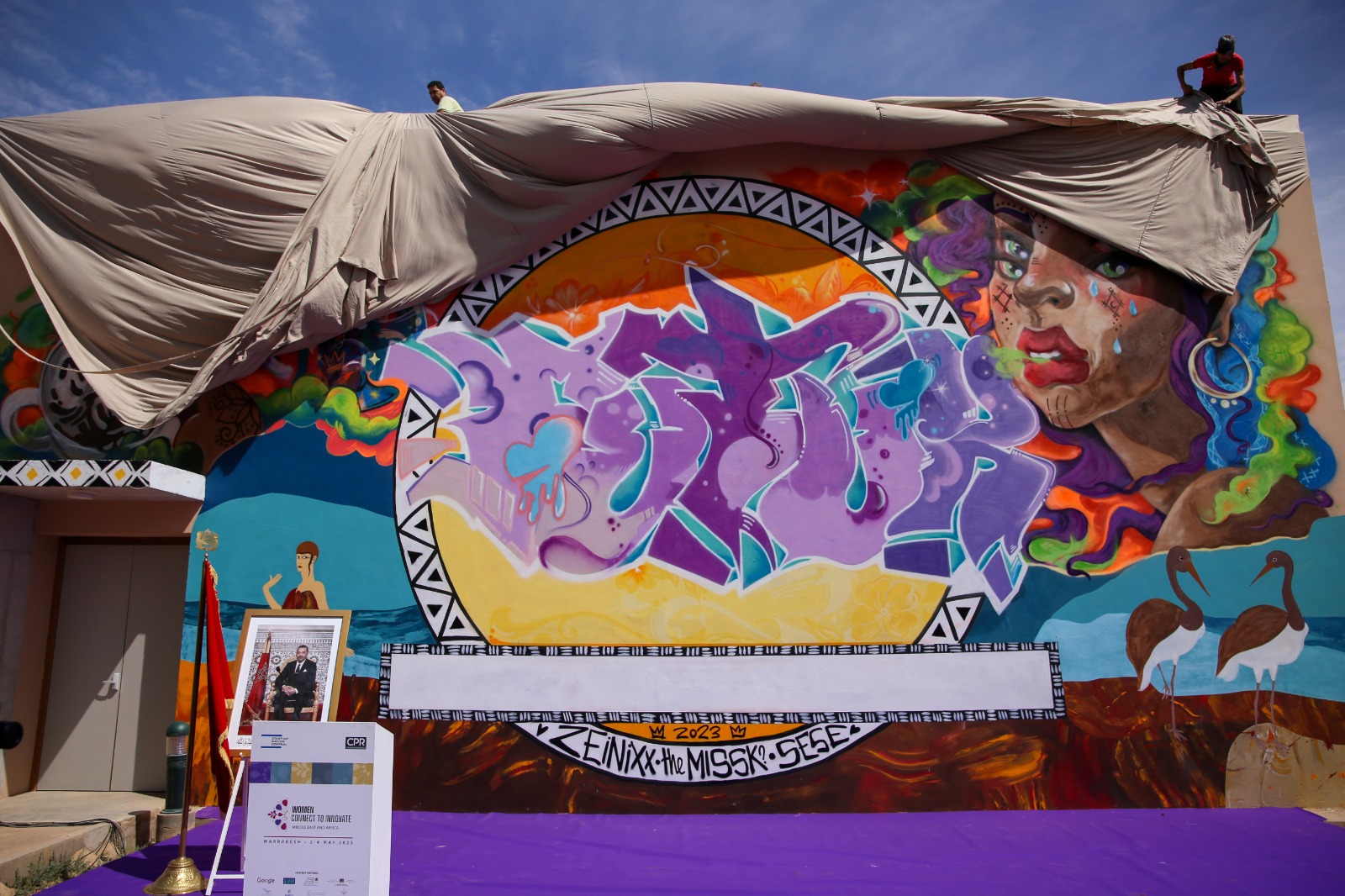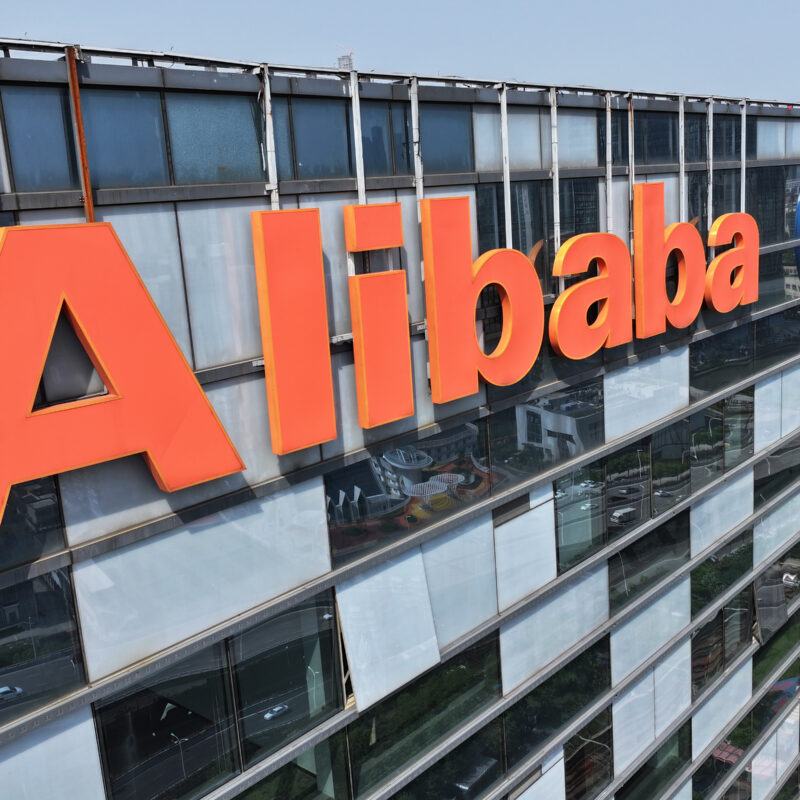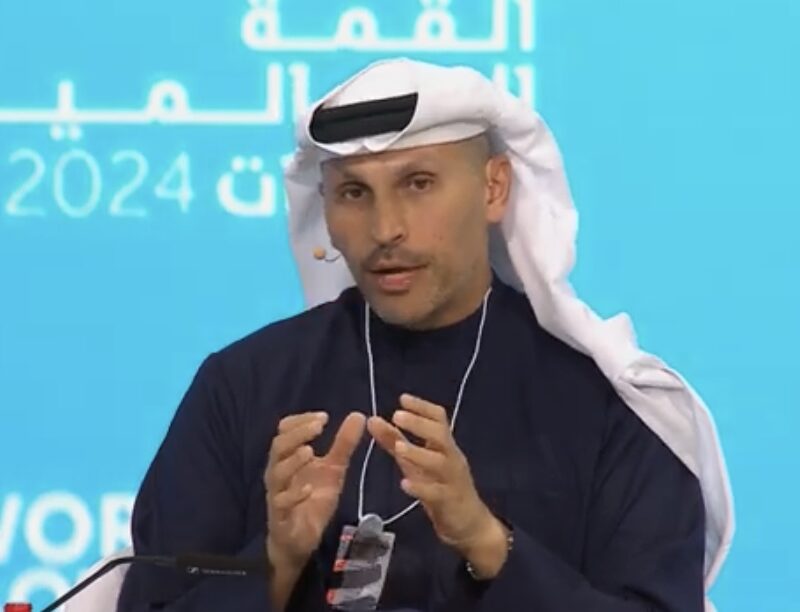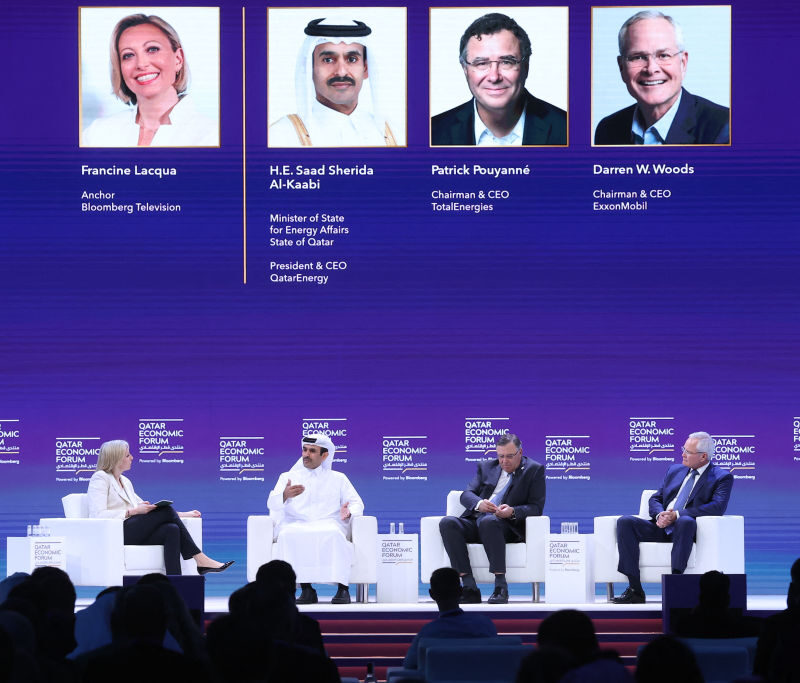Moroccan conference draws MENA’s female business leaders
Gathering in Marrakesh brings together women from North Africa, the Gulf and Israel to develop networks and confront shared challenges in the region

START-UP NATION CENTRAL
Graffiti wall at Marrakesh conference painted by artists from Morocco, Senegal and Israel
In a bid to strengthen normalization efforts across the Middle East and North Africa, Morocco, Bahrain, the United Arab Emirates and Israel are promoting business ties among women.
The most recent joint activity was a three-day conference in May that took place in Marrakesh, Morocco, and drew nearly 100 female business leaders. Besides networking, the gathering explored women’s access to education, financial security and opportunities for leadership. In a series of panel discussions and workshops, the conference focused on investments, corporate funding and infrastructure development. Participants also discussed shared challenges for women in the Middle East and Africa and the impact of geography, culture and religion.
The conference was organized by Start-Up Nation Central, a nonprofit organization that promotes Israeli tech companies, and Morocco’s Consensus Public Relations firm.
Among the participants were women from Bahrain, Benin, Egypt, Israel, Jordan, Kenya, Morocco, Nigeria, South Africa, Sudan, United Arab Emirates and the U.S., organizers said.
“What we were hearing often is that these women, particularly in the countries that we targeted, are often alone around decision-making tables,” Aviva Steinberger, SNC’s director of innovation diplomacy, told The Circuit. “The goals of this event were to connect these women at a professional level and at a personal level.”
The conference, which was titled “Women Connect to Innovate,” was supported by a range of companies and organizations including Google, Women in Tech, Morocco’s Foundation for Research, Development and Innovation in Science and Engineering and the Mohammed VI Polytechnic University.
Among the participants from Israel was Justine Zwerling, who heads the Middle East branch of Shore Capital Markets and was a founding member of the Gulf-Israel Women’s Forum. Morocco’s minister of solidarity and social integration, Aawatif Hayar, hosted a dinner for the conference. While the workshops were going on, three artists from Morocco, Israel and Senegal created a graffiti wall dedicated to women’s solidarity and international cooperation.
The event followed up on a larger conference organized last year by SNC that focused on developing ties between Moroccan and Israeli technology startups, particularly those addressing health, agriculture and climate technologies.
During the 2022 conference, companies and organizations from the two countries signed 13 memorandums of understanding: Israel’s Watergen, whose technology extracts water from air, signed a distribution deal with Morocco’s Waman Solutions; Israel’s Mehadrin formed a partnership with Adolam under the name “Global Farming Morocco” to grow and export avocados; and Israel’s Alma Lasers signed with Casablanca-based Guess Clinic to bring Alma’s aesthetic surgery devices to the Moroccan market.
Israel and Morocco maintained low-key business and diplomatic ties for years until agreeing to normalize relations under the Abraham Accords in December 2020. Many Israelis come from Moroccan descent and are estimated to number close to 1 million. André Azoulay, a prominent Jewish businessman in Morocco and senior adviser to King Mohammed VI, presented SNC with an award for its contributions to technological cooperation between the two countries.









